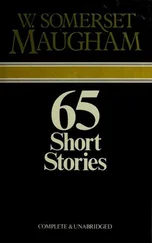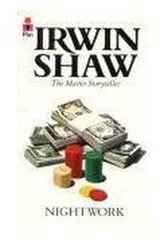Irwin Shaw - Short Stories - Five Decades
Здесь есть возможность читать онлайн «Irwin Shaw - Short Stories - Five Decades» весь текст электронной книги совершенно бесплатно (целиком полную версию без сокращений). В некоторых случаях можно слушать аудио, скачать через торрент в формате fb2 и присутствует краткое содержание. Год выпуска: 2013, Издательство: Open Road Media, Жанр: Современная проза, на английском языке. Описание произведения, (предисловие) а так же отзывы посетителей доступны на портале библиотеки ЛибКат.
- Название:Short Stories: Five Decades
- Автор:
- Издательство:Open Road Media
- Жанр:
- Год:2013
- ISBN:нет данных
- Рейтинг книги:5 / 5. Голосов: 1
-
Избранное:Добавить в избранное
- Отзывы:
-
Ваша оценка:
- 100
- 1
- 2
- 3
- 4
- 5
Short Stories: Five Decades: краткое содержание, описание и аннотация
Предлагаем к чтению аннотацию, описание, краткое содержание или предисловие (зависит от того, что написал сам автор книги «Short Stories: Five Decades»). Если вы не нашли необходимую информацию о книге — напишите в комментариях, мы постараемся отыскать её.
Short Stories: Five Decades — читать онлайн бесплатно полную книгу (весь текст) целиком
Ниже представлен текст книги, разбитый по страницам. Система сохранения места последней прочитанной страницы, позволяет с удобством читать онлайн бесплатно книгу «Short Stories: Five Decades», без необходимости каждый раз заново искать на чём Вы остановились. Поставьте закладку, и сможете в любой момент перейти на страницу, на которой закончили чтение.
Интервал:
Закладка:
His mother opened the door. “Martha’s on the phone.”
Andrew clattered out in his spiked shoes, holding the old, torn fielder’s glove. He closed the door to the dining room to show his mother this was going to be a private conversation.
“Hello,” he said. “Yes.” He listened gravely. “No,” he said. “I guess not. Good-bye. Good luck, Martha.”
He stood looking at the phone. His mother came in and he raised his head and started down the steps.
“Andrew,” she said, “I want to ask you something.”
“What?”
“Could you spare fifty dollars, Andrew?”
“Oh, God!”
“It’s important. You know I wouldn’t ask you if it wasn’t important. It’s for Dorothy.”
“What does she need it for?”
“She’s going to a party, a very important party, a lot of very big people’re going to be there and she’s sure they’ll ask her to play.…”
“Do the invitations cost fifty dollars apiece?” Andrew kicked the top step and a little piece of dried mud fell off the spiked shoes.
“No, Andrew.” His mother was talking in her asking-for-money voice. “It’s for a dress. She can’t go without a new dress, she says. There’s a man there she’s after.”
“She won’t get him, dress or no dress,” Andrew said. “Your daughter’s a very plain girl.”
“I know,” his mother’s hands waved a little, helpless and sad. “But it’s better if she at least does the best she can. I feel sorry for her, Andrew …”
“Everybody comes to me!” Andrew yelled, his voice suddenly high. “Nobody leaves me alone! Not for a minute!”
He was crying now and he turned to hide it from his mother. She looked at him, surprised, shaking her head. She put her arms around him. “Just do what you want to, Andrew, that’s all. Don’t do anything you don’t want to do.”
“Yeah,” Andrew said. “Yeah. I’m sorry. I’ll give you the money. I’m sorry I yelled at you.”
“Don’t give it to me if you don’t want to, Andrew.” His mother was saying this honestly, believing it.
He laughed a little. “I want to, Mom, I want to.”
He patted her shoulder and went down toward the baseball field, leaving her standing there puzzled at the top of the steps.
The sun and the breeze felt good on the baseball field, and he forgot for an hour, but he moved slowly. His arm hurt at the shoulder when he threw, and the boy playing second base called him Mister, which he wouldn’t have done even last year, when Andrew was twenty-four.

Second Mortgage
T he bell rang and I went to the window to see who it was.
“Don’t answer it,” my father called. “It may be a summons.”
“They can’t serve summonses on Sunday,” I said, parting the curtains cautiously.
“Don’t answer it, anyway.” My father came into the living room. He didn’t know how to handle bill-collectors. They bullied him and he made wild promises, very seriously, to pay, and never did and they’d come and hound him terribly. When he was home alone he never answered the doorbell. He never even went to see who it was. He just sat in the kitchen reading the paper while the bell clanged over his head. Even the postman couldn’t get the front door opened when my father was home alone.
The bell rang again. “What the hell,” I said, “it’s only a little old lady. She’s probably selling something. We can open the door.”
“What for?” my father asked. “We can’t buy anything.”
I opened the door anyway. The little old lady jumped when the door swung back. Her hands fluttered. They were plump little hands, swollen, without gloves. “I’m Mrs. Shapiro,” she said, waiting.
I waited. She tried a smile. I waited sternly. Strangers are never friends at the doors of the poor. I was only seventeen but I had learned that anyone who rang our doorbell might turn out to be the Edison Electric Company or the Brooklyn Borough Gas Company, intent on shutting off the electricity or the gas.
Mrs. Shapiro hunched inside her shapeless little coat. “I own the second mortgage,” she said.
Still I waited, sternly. Another enemy.
Her hand came out, cold, plump, and pleading. “I want to speak to your father, maybe,” she said.
My father had retreated to the kitchen and the Sunday Times , hoping that nothing would happen at the front door that would require his tearing himself out of that peaceful welter of journalism.
“Pop!” I called. I heard him sigh and the rustle of the Sunday Times as he put down the editorial page. Mrs. Shapiro came in and I closed the door. My father came in, wiping his glasses, longing for the kitchen.
“This is Mrs. Shapiro, Pop,” I said. “She owns the second mortgage …”
“Yes.” Mrs. Shapiro was eager and bright and apologetic for a moment. She moved into the middle of the room. There were runs in her fat little stockings and her shoes were shapeless. “I came because …”
“Yes,” my father said, with his imitation of a businesslike attitude, that he always tried on bill-collectors and which he lost as soon as they started to bully him. “Yes. Of course. Just wait a moment … My wife … my wife knows more about this than … Oh … Helen! Helen!”
My mother came down from upstairs, fixing her hair.
“Mrs. Shapiro,” my father said. “The second mortgage …”
“It’s this way,” Mrs. Shapiro said, moving toward my mother. “In 1929, I …”
“Won’t you sit down?” My mother pointed to a chair. She glanced at my father, tightening her mouth. My mother was always contemptuous of my father at those times when my father proved unequal to the task of beating off the representatives of our poverty.
Mrs. Shapiro sat on the very edge of the chair, leaning forward, her knees together. “The second mortgage is eight hundred dollars,” Mrs. Shapiro said. We all sat silent. Mrs. Shapiro was disheartened by the silence, but she went on, her fat gray cheeks moving anxiously over her words. “Eight hundred dollars is a lot of money,” she said.
We didn’t contradict her.
“In 1929,” Mrs. Shapiro said, “I had eight thousand dollars.” She looked to our faces for pity, envy, anything. We sat there expressionless, with the faces of people who have become used to owing money. “Eight thousand dollars. I worked all my life for it. I had a vegetable store. It’s hard to make money in vegetables nowadays. Vegetables are expensive and they spoil and there is always somebody else who sells them cheaper than you can …”
“Yes,” my mother said, “vegetables are very expensive. I paid twenty cents for a head of cauliflower yesterday …”
“It wasn’t any good, either,” my father said. “I don’t like cauliflower. It reminds me of cabbage, somehow.”
“When Mr. Shapiro died of cancer, it took him two years to die,” Mrs. Shapiro went on, trying to please us. “I had eight thousand dollars. I had rheumatism and high blood pressure and I couldn’t take care of the store any more.” Once more she begged our faces for that crumb of pity. “I took the eight thousand dollars out of the bank and I went to Mr. Mayer and I said, ‘Mr. Mayer, you’re a big man, you have a fine reputation, I am giving you a widow’s life’s savings, invest it for me so that I have enough to live on. I don’t need much, Mr. Mayer,’ I told him, ‘just a few dollars a week until I die, that’s all,’ I said, ‘just a few dollars.’”
“I know Mayer,” my father said. “He’s not doing so well now. The Trust Company’s in receivership now.”
Читать дальшеИнтервал:
Закладка:
Похожие книги на «Short Stories: Five Decades»
Представляем Вашему вниманию похожие книги на «Short Stories: Five Decades» списком для выбора. Мы отобрали схожую по названию и смыслу литературу в надежде предоставить читателям больше вариантов отыскать новые, интересные, ещё непрочитанные произведения.
Обсуждение, отзывы о книге «Short Stories: Five Decades» и просто собственные мнения читателей. Оставьте ваши комментарии, напишите, что Вы думаете о произведении, его смысле или главных героях. Укажите что конкретно понравилось, а что нет, и почему Вы так считаете.











